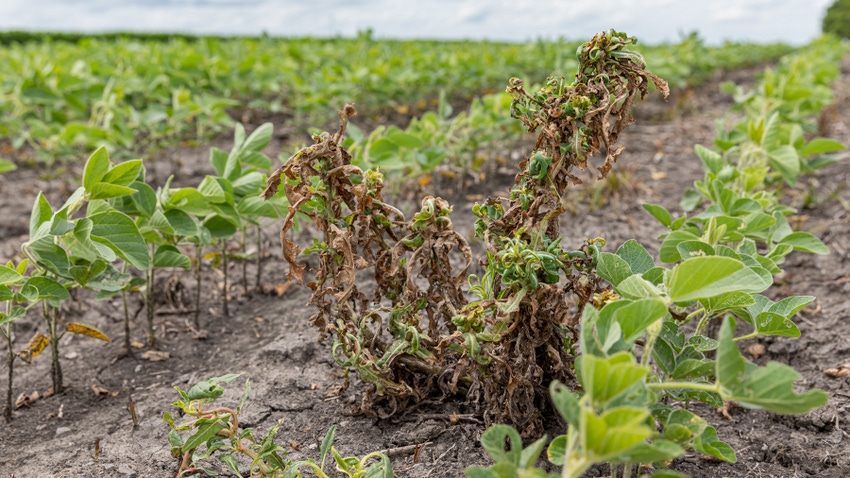
With high soil moisture and a late spring plant, now is the time to make a plan of attack on early-season weeds. Whether using a preemerge burndown or a layered residual system, the proper products can help keep weeds at bay.
“Now is the main time where you see a lot of producers out wondering what’s going to be best for their fields,” says Dan Melaas, technical service representative for BASF. “Many growers work during the course of the winter to come up with an action plan, but it can still be tweaked to ensure weeds are cleared out, and we have more in the combine come harvest.”
While different regions experience different weed pressures, some weeds cause more problems than others. “Kochia seems to be our archnemesis this year in the central part of the state,” he says of North Dakota. “And then as you move into the valley, you get into waterhemp being more of the issue.”
New research from North Dakota State University Extension found glyphosate resistance in some populations of waterhemp, but Melaas says effective products are still available. “Zidua is one of those products that still works very well against waterhemp,” he says. “It’s a residual product that you put down during the season to keep waterhemp at bay, keeping fields clean through the course of the year.”
These products and more can be used to reduce early-season weed impacts.
Knocking down soybean weeds
Melaas describes what plan could be used for a soybean field dealing with waterhemp. “Let’s say you planted an extended flex variety of beans. We want to start out with a good early-season burndown, such as Zidua Pro, and that’s going to hold the weeds off until the crop gets up and out of the ground,” he explains.
“Next, we’ll come in with a Liberty application to help control weeds that are coming later, and with that Liberty, we can add in a Zidua application to keep more residual there until the crop canopies,” Melaas adds.
While every operation and situation might vary, Melaas says this plan might also include additional spray passes depending on weed pressure.
With a vast portfolio of crop protection products, contact your local BASF representative for your weed defense plan.
About the Author(s)
You May Also Like






